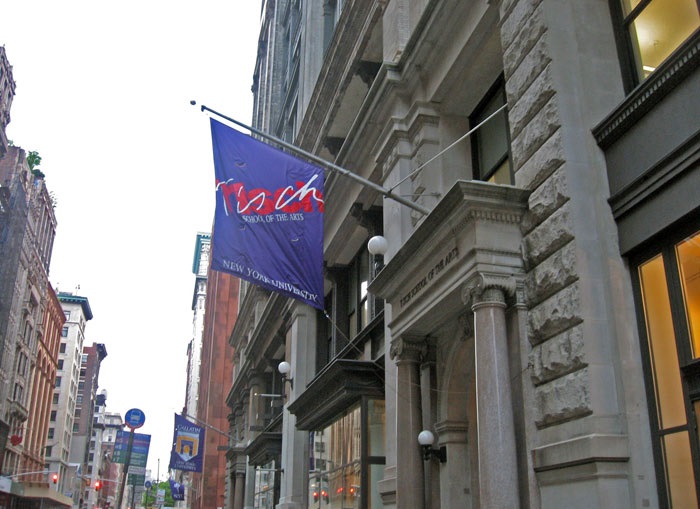Click here to discover the top veterinary schools in 2019.
If you want to study veterinary science at a highly ranked institution, the QS University Rankings by Subject should be one of the first things you check. Featuring 50 of the world’s top veterinary schools around the world, the ranking uses a methodology which assesses research impact, academic reputation and other factors.
As well as looking at rankings, you’ll also want to consider the campus culture of your possible home for the next four or five years. To give you a better sense of what these top veterinary schools are actually like, here’s a closer look at what it’s like to study at the 10 best universities for veterinary science in the world.
You can also read more about studying veterinary science in our course guide, or view the full interactive ranking table here.
10. Texas A&M University
Ranked 10th for veterinary science in 2018, the US’ Texas A&M University receives its highest score in the ranking for citations per paper, a measure of research impact.
The university’s College of Veterinary Medicine & Biomedical Sciences was established in 1916 and is now a major educational, medical and research center. Its professional Doctor of Veterinary Medicine (DVM) is a four-year program made up of three years of mixed classroom/laboratory instruction, followed by a final year of clinical rotations in the Veterinary Medical Teaching Hospital.
The school and hospital are located in the city of College Station, Texas, which has a warm, dry climate as you might expect for the area. You won’t be bored when you join the Texas A&M “Aggies”, as the university has over one thousand student organizations to choose from.
9. University of Liverpool
Heading to the UK for the next of these top veterinary schools, the University of Liverpool is ranked ninth for veterinary science in this year’s ranking and receives the second highest score in the world for citations per paper. Liverpool was the first UK university to offer a veterinary science degree and offers in-depth clinical and research-based training from renowned experts in their fields.
The Institute of Veterinary Science is unique among UK veterinary schools for owning two large working farms which students spend time at from their very first year, as well as two referral hospitals and three first opinion practices. Veterinary science students at Liverpool also benefit from the high staff to student ratio and are assigned a personal tutor on entry.
8. University of Edinburgh
Ranked eighth, the University of Edinburgh’s Royal (Dick) School of Veterinary Studies, commonly known as Dick Vet, was established in 1823 by William Dick, making it one of the oldest veterinary schools in the world. Study at Dick Vet and you’ll be able to make the most of the school’s excellent facilities at its Easter Bush campus (located around eight miles south of Edinburgh city center) and two miles east is a 250-hectare livestock farm at Langhill, where you’ll learn animal handling and farm animal medicine.
Despite Edinburgh’s northern latitude, the city is relatively mild, although you can expect it to be colder out at Dick Vet’s more rural site. Edinburgh has a lively student social scene, and the famous Fringe festival in August could be another powerful draw.
7. University of Guelph
Over in Canada, the University of Guelph is ranked seventh among the world’s top veterinary schools in 2018. Its Ontario Veterinary College (OVC) is the oldest in Canada (founded in 1862) and offers a Doctor of Veterinary Medicine (DVM) degree which takes four years to complete and is widely accredited and respected.
The university is home to a diverse community and has a large range of student clubs to get involved with in your spare time (a particularly relevant one could be the Future Vets Club).
Guelph itself is consistently rated as one of the best places to live in Canada, with low crime rates, a clean environment, low unemployment rates and a generally high standard of living. Of course, being in Canada, you can expect some very cold winters.
6. University of Pennsylvania
The University of Pennsylvania is ranked sixth in this year’s veterinary science ranking, achieving perfect scores in both of the research-based indicators used to compile the ranking (citations per paper and H-index citations).
Penn Vet is the only veterinary school in the US to be developed in association with a medical school. Its Veterinariae Medicinae Doctoris (VDM) degree takes four years to complete and offers unique opportunities for teaching, research and service.
Established in 1884, the university’s School of Veterinary Medicine (known as Penn Vet) has two campuses, the New Bolton Center Campus and the Philadelphia campus. Philadelphia is one of the US’ most historic cities and is home to a host of museums, art galleries, restaurants, concert halls and clubs, as well as having the nation’s first zoo, located on Fairmount Park.
5. Utrecht University
The Netherlands’ Utrecht University is up four places in this year’s veterinary science ranking, to now be placed fifth in the world. Utrecht is the only university in the Netherlands that offers a veterinary training program, taught entirely in Dutch and it takes six years to complete (made up of a three-year bachelor’s and a three-year master’s degree).
At the master’s stage of the program you’ll be able to tailor your degree by choosing from one of three specialisms: Companion Animal Health, Farm Animal Health/Veterinary Public Health and Equine Health.
Utrecht itself is a vibrant city in central Netherlands with an active student and cultural scene, second only to Amsterdam. The university has over 150 student organizations to choose from, including plenty relating to sports, arts and other hobbies and interests.
4. University of Cambridge
Ranked fourth for veterinary science this year and boasting a perfect score for employer reputation, the University of Cambridge’s VetMB degree takes six years to complete. From years one to three you’ll study the basic veterinary sciences before learning to apply your knowledge in the final three clinical years. During the vacations of years one or two you’ll also be required to complete at least 12 weeks’ work experience to gain knowledge of animal husbandry.
Your final year is lecture-free, so you’ll work through a series of 40 weeks of clinical rotations in small groups at the Queen's Veterinary School Hospital, providing further opportunities to take on more responsibilities and gain clinical experience in the diagnosis, management and care of patients. During the sixth year you’ll also complete an elective project in a subject of your choice.
3. Royal Veterinary College, University of London
Royal Veterinary College, University of London (RVC) continues to be the highest-ranked of the UK’s top veterinary schools this year, retaining its position of third place. A constituent college of the University of London, RVC is the largest and oldest veterinary school in the UK, having been established in 1791.
Study at RVC and you’ll get the best of both worlds as the college has an urban campus in London – where you’ll spend the first two years of your veterinary course – and a rural Hawkshead campus near Potters Bar in Hertfordshire, where you’ll find the Queen Mother Animal Hospital, the Equine Hospital, the 200-hectare Bolton's Park Farm and other state-of-the-art lecture and laboratory facilities.
The university also owns and manages the London BioScience Innovation Centre, a business incubator home to more than 50 life science companies.
2. Cornell University
Cornell University is ranked second in the world for veterinary science this year, with very high scores for academic reputation and citations per paper. Cornell’s College of Veterinary Medicine aims to promote research at molecular, cellular, organismal, and population levels to support the understanding of medicine, public health and policy.
Students of the university’s Doctor of Veterinary Medicine (DVM) degree work with animals from day one and build a strong foundation of biomedical and clinical knowledge, learning from professors who are reinventing their fields every day with knowledge gained from their research.
The college is located on the university’s main campus in Ithaca, New York, located among the rolling valleys of the Finger Lakes region. The campus’ location on a hill provides beautiful views of the surrounding area. The continental climate means Ithaca experiences cold winters and hot, humid summers.
1. University of California, Davis (UCD)
Concluding our look at the world’s top veterinary schools is the public University of California, Davis, which has been ranked first in the world for veterinary science every year since the ranking was released in 2015. The university’s School of Veterinary Medicine is the largest in the US and addresses the health of all animals, with expertise that also encompasses human health concerns. Among its degree options is a Master of Preventive Veterinary Medicine degree, the first of its kind to be offered in the world.
UC Davis is based in the small city of Davis, which is 15 miles from state capital Sacramento. The city’s large population of students gives it a college town feel, and you’ll benefit from the close proximity to a large, vibrant metropolitan area. However, you’re unlikely to be bored if you hang around on campus, as there are more than 500 student organizations to choose from, plus student-run events such as Picnic Day, the university’s annual open house.
Want more content like this? Register for free site membership to get regular updates and your own personal content feed.


















